
Filter News
Area of Research
- Advanced Manufacturing (7)
- Biological Systems (1)
- Biology and Environment (38)
- Building Technologies (2)
- Clean Energy (101)
- Computational Biology (1)
- Computational Engineering (2)
- Computer Science (5)
- Energy Frontier Research Centers (1)
- Energy Sciences (1)
- Fusion and Fission (5)
- Fusion Energy (8)
- Isotopes (2)
- Materials (55)
- Materials for Computing (10)
- National Security (11)
- Neutron Science (21)
- Nuclear Science and Technology (9)
- Nuclear Systems Modeling, Simulation and Validation (1)
- Supercomputing (28)
- Transportation Systems (2)
News Type
News Topics
- (-) Advanced Reactors (23)
- (-) Bioenergy (39)
- (-) Biomedical (28)
- (-) Coronavirus (28)
- (-) Machine Learning (23)
- (-) Nanotechnology (38)
- (-) Statistics (3)
- (-) Sustainable Energy (75)
- (-) Transportation (60)
- 3-D Printing/Advanced Manufacturing (75)
- Artificial Intelligence (42)
- Big Data (24)
- Biology (39)
- Biotechnology (10)
- Buildings (32)
- Chemical Sciences (38)
- Clean Water (14)
- Climate Change (44)
- Composites (18)
- Computer Science (96)
- Critical Materials (23)
- Cybersecurity (20)
- Decarbonization (27)
- Education (3)
- Element Discovery (1)
- Energy Storage (72)
- Environment (79)
- Exascale Computing (10)
- Fossil Energy (1)
- Frontier (15)
- Fusion (23)
- Grid (35)
- High-Performance Computing (37)
- Hydropower (6)
- Irradiation (2)
- Isotopes (23)
- ITER (5)
- Materials (94)
- Materials Science (83)
- Mathematics (1)
- Mercury (5)
- Microelectronics (1)
- Microscopy (27)
- Molten Salt (7)
- National Security (21)
- Net Zero (4)
- Neutron Science (76)
- Nuclear Energy (45)
- Partnerships (28)
- Physics (28)
- Polymers (21)
- Quantum Computing (13)
- Quantum Science (36)
- Renewable Energy (1)
- Security (12)
- Simulation (15)
- Space Exploration (13)
- Summit (26)
- Transformational Challenge Reactor (4)
Media Contacts

Oak Ridge National Laboratory’s latest Transportation Energy Data Book: Edition 37 reports that the number of vehicles nationwide is growing faster than the population, with sales more than 17 million since 2015, and the average household vehicle travels more than 11,000 miles per year.
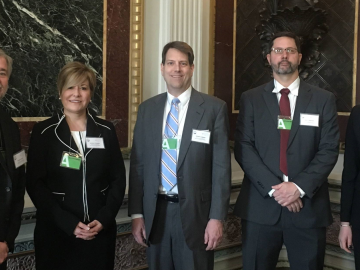
OAK RIDGE, Tenn., March 4, 2019—A team of researchers from the Department of Energy’s Oak Ridge National Laboratory Health Data Sciences Institute have harnessed the power of artificial intelligence to better match cancer patients with clinical trials.
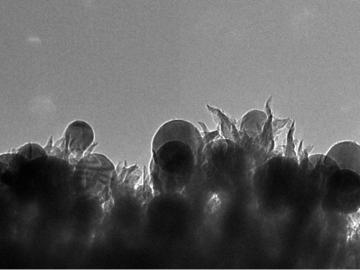
OAK RIDGE, Tenn., March 1, 2019—ReactWell, LLC, has licensed a novel waste-to-fuel technology from the Department of Energy’s Oak Ridge National Laboratory to improve energy conversion methods for cleaner, more efficient oil and gas, chemical and
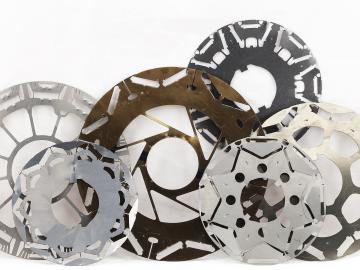
Oak Ridge National Laboratory scientists have created open source software that scales up analysis of motor designs to run on the fastest computers available, including those accessible to outside users at the Oak Ridge Leadership Computing Facility.

OAK RIDGE, Tenn., Feb. 8, 2019—The Department of Energy’s Oak Ridge National Laboratory has named Sean Hearne director of the Center for Nanophase Materials Sciences. The center is a DOE Office of Science User Facility that brings world-leading resources and capabilities to the nanoscience resear...
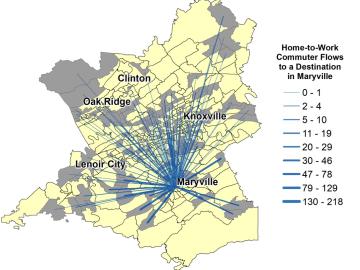
Oak Ridge National Laboratory geospatial scientists who study the movement of people are using advanced machine learning methods to better predict home-to-work commuting patterns.

OAK RIDGE, Tenn., Jan. 31, 2019—A new electron microscopy technique that detects the subtle changes in the weight of proteins at the nanoscale—while keeping the sample intact—could open a new pathway for deeper, more comprehensive studies of the basic building blocks of life.
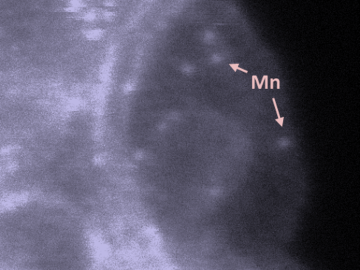
Oak Ridge National Laboratory scientists studying fuel cells as a potential alternative to internal combustion engines used sophisticated electron microscopy to investigate the benefits of replacing high-cost platinum with a lower cost, carbon-nitrogen-manganese-based catalyst.
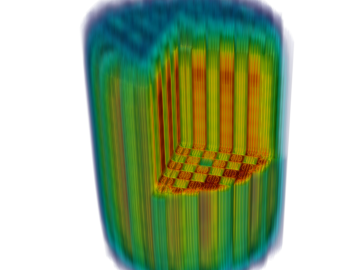
The Department of Energy’s Oak Ridge National Laboratory is collaborating with industry on six new projects focused on advancing commercial nuclear energy technologies that offer potential improvements to current nuclear reactors and move new reactor designs closer to deployment.
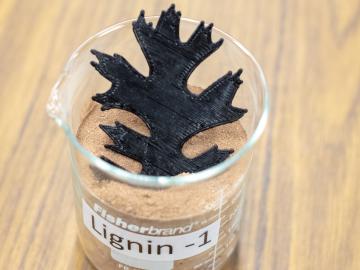
Scientists at the Department of Energy’s Oak Ridge National Laboratory have created a recipe for a renewable 3D printing feedstock that could spur a profitable new use for an intractable biorefinery byproduct: lignin.


